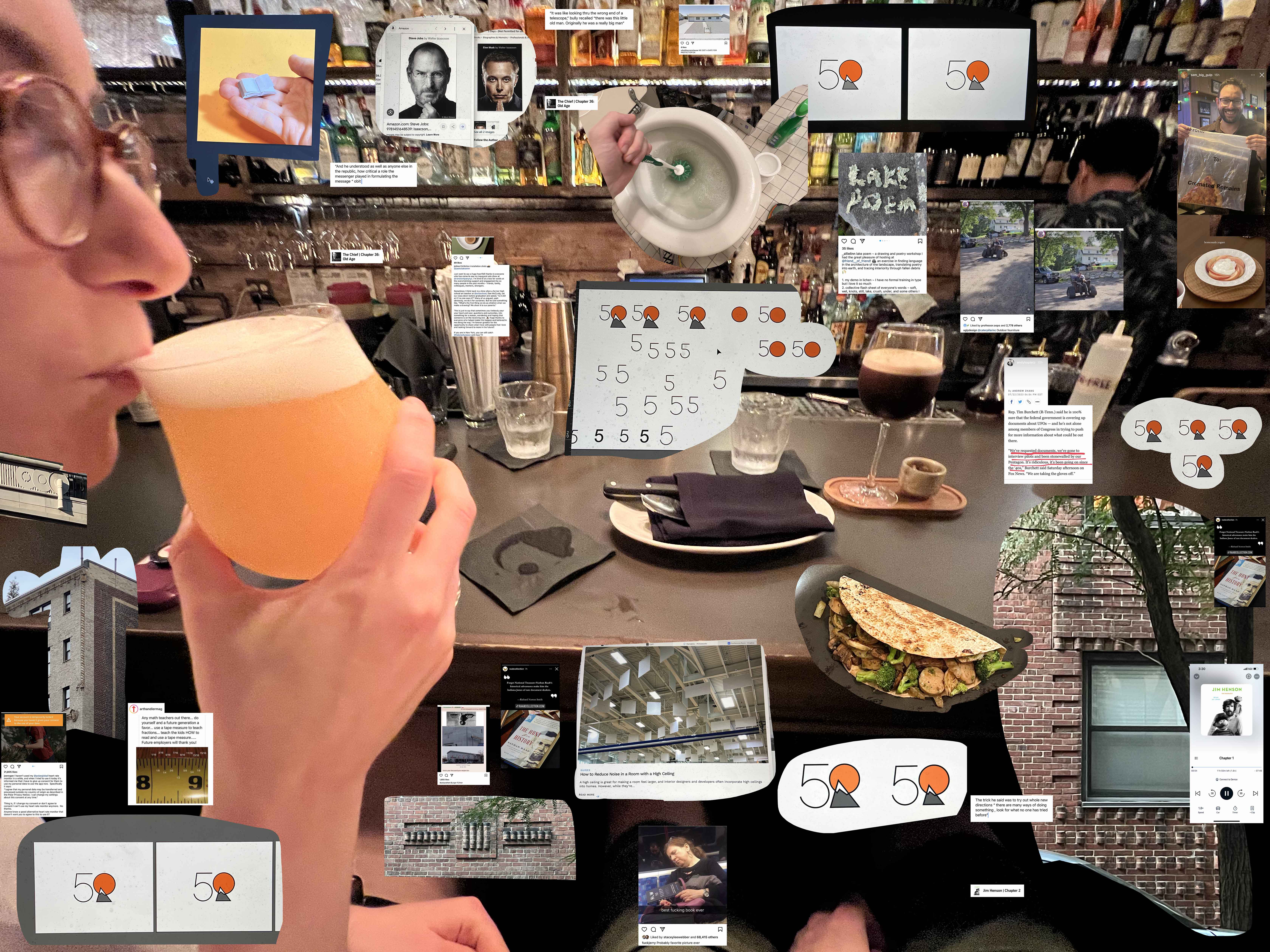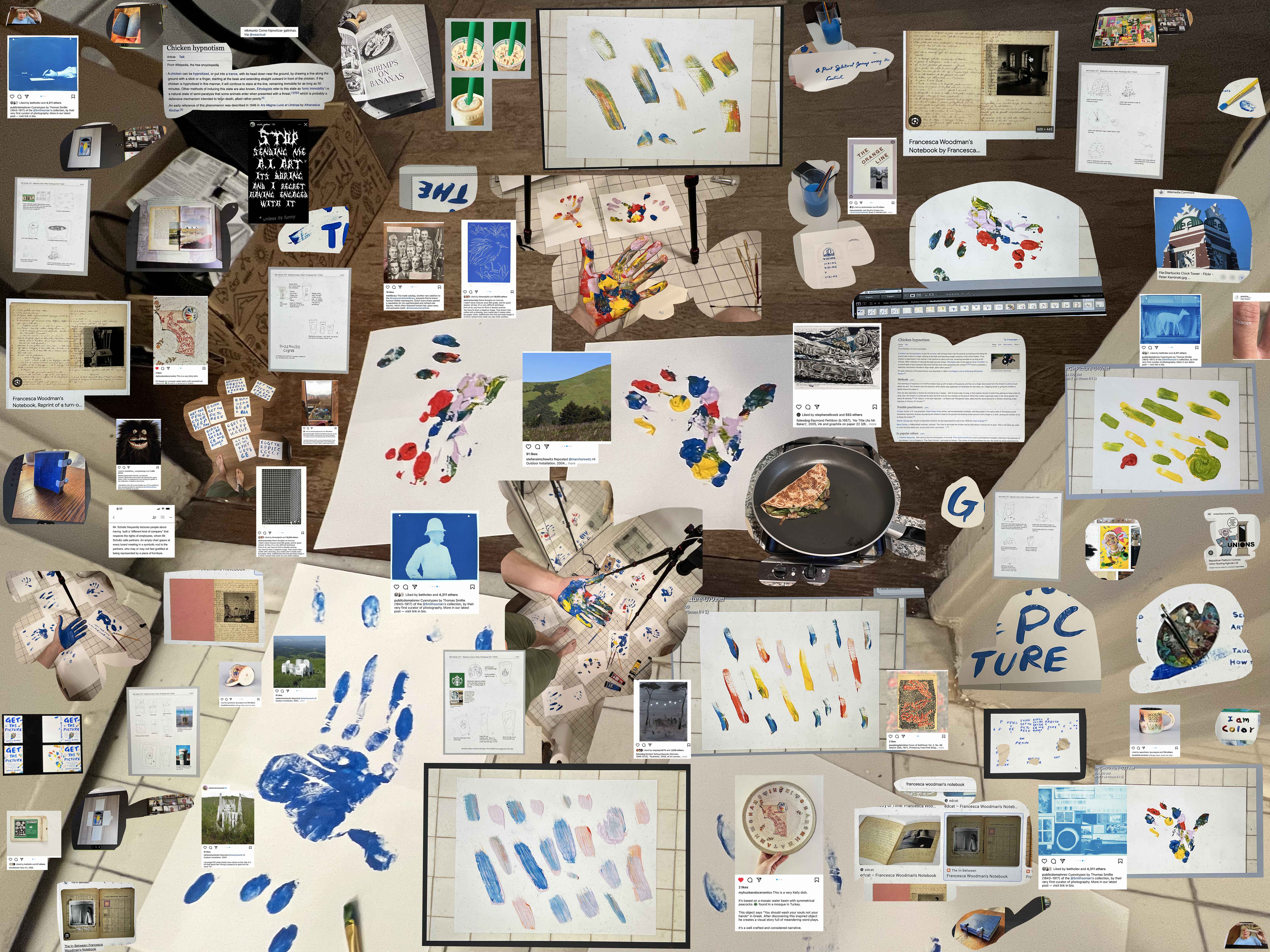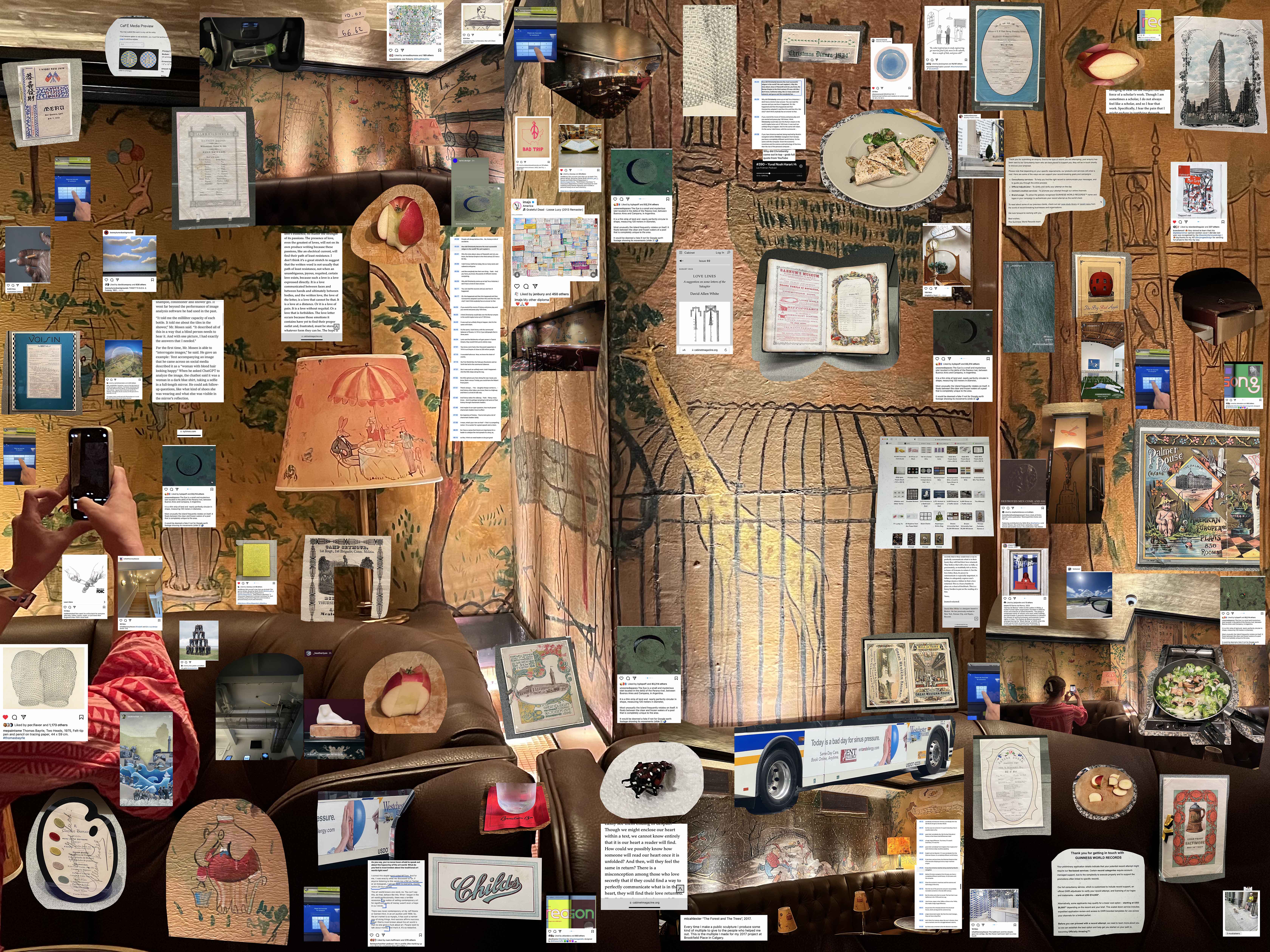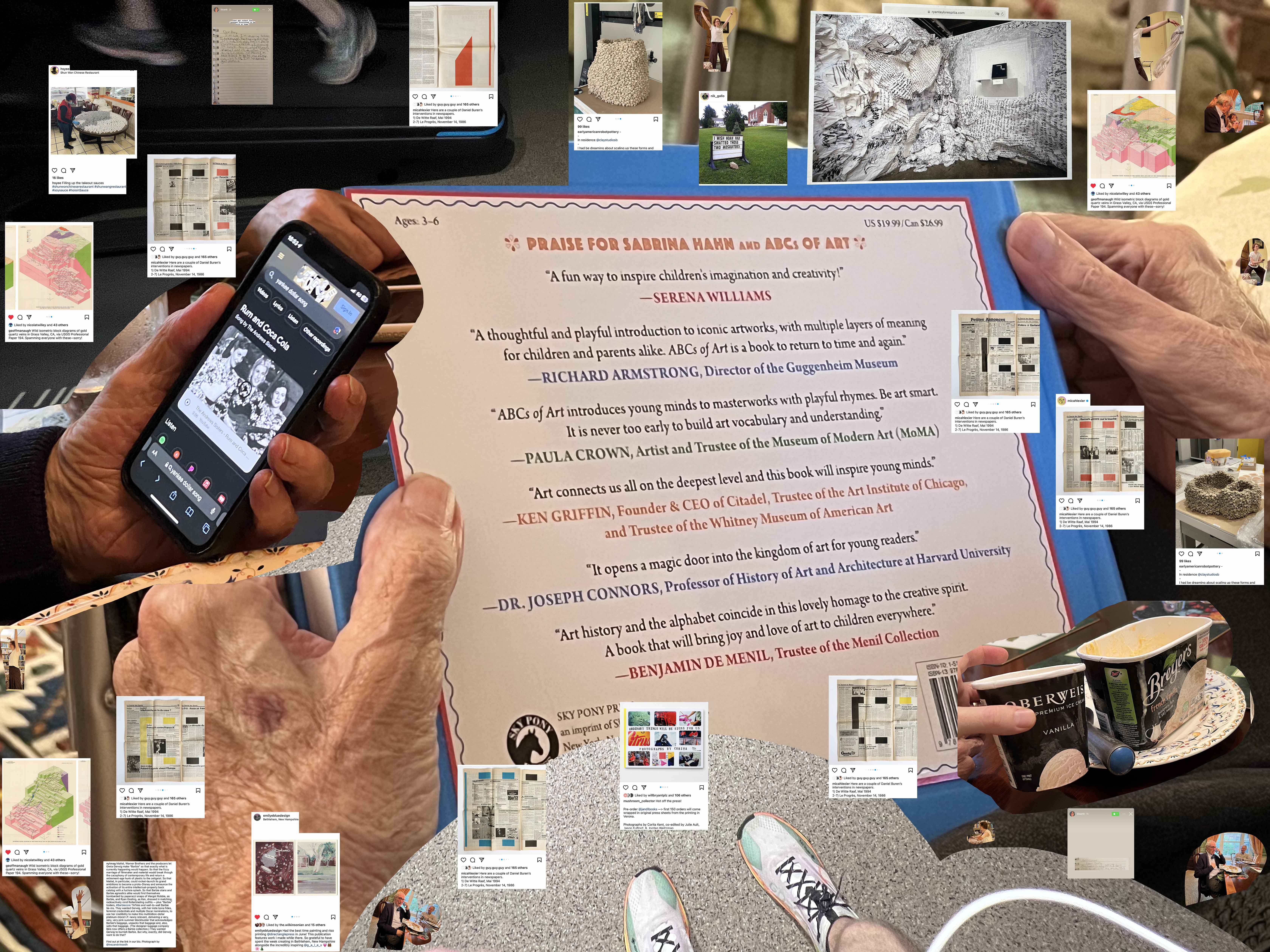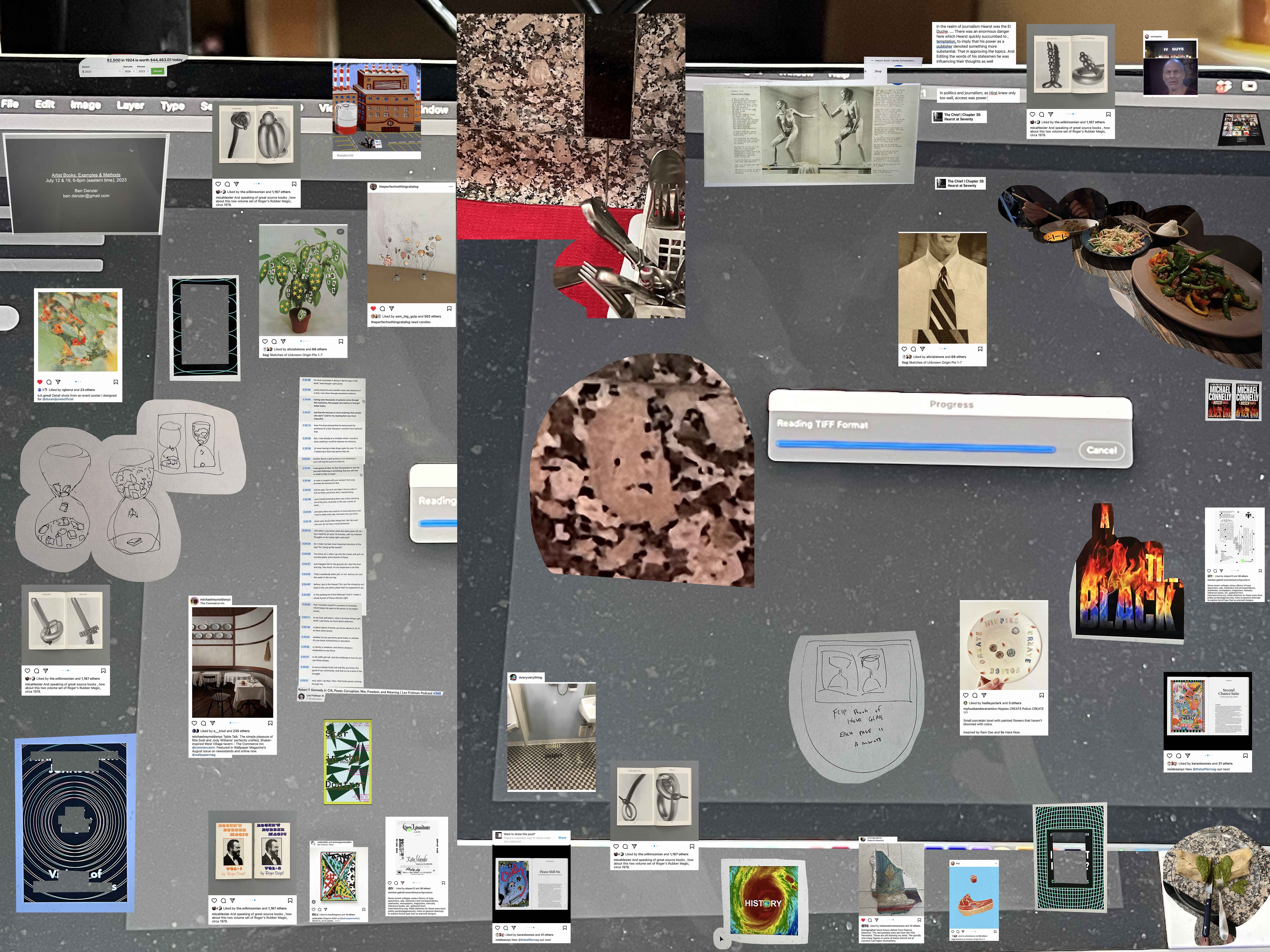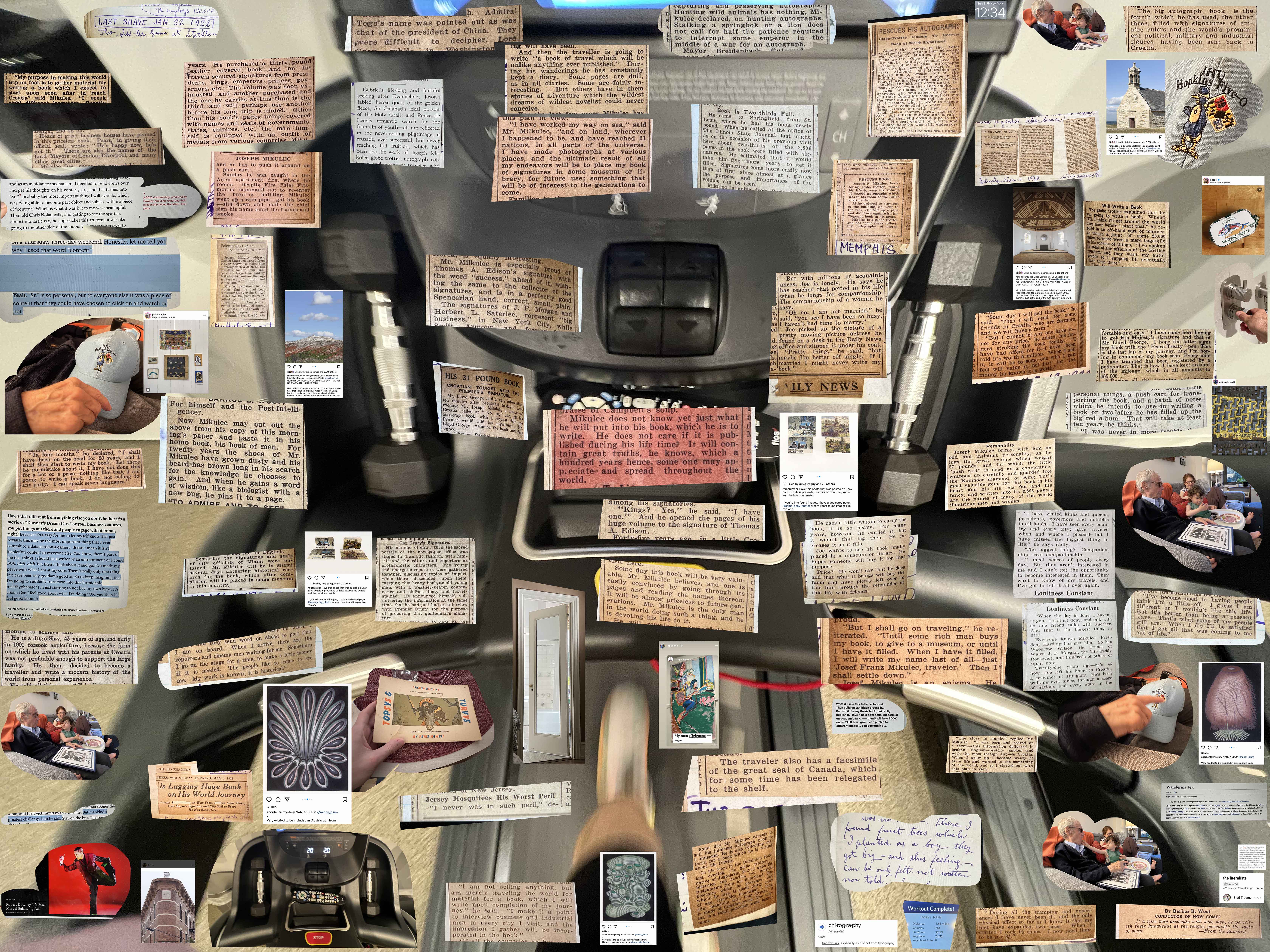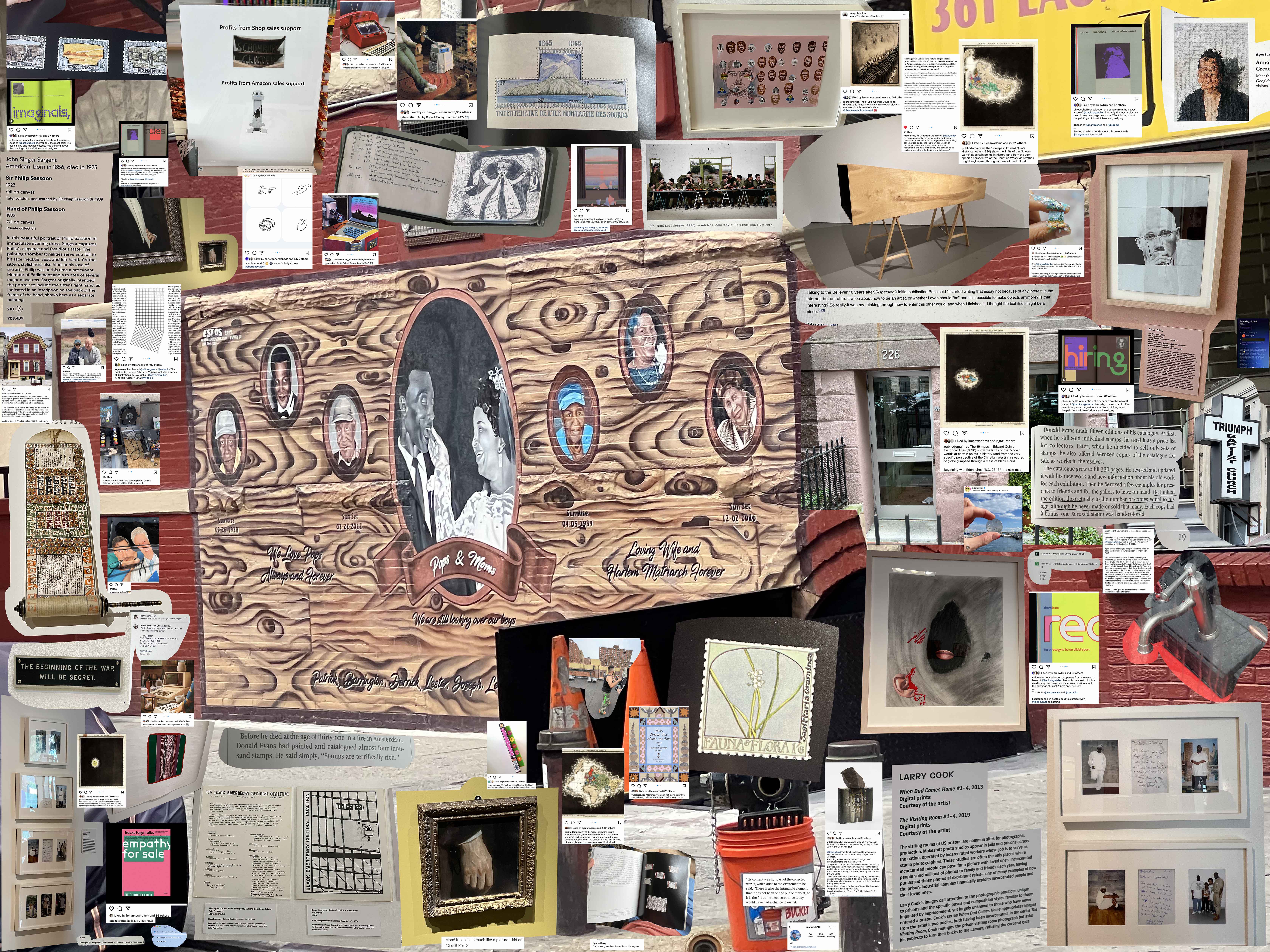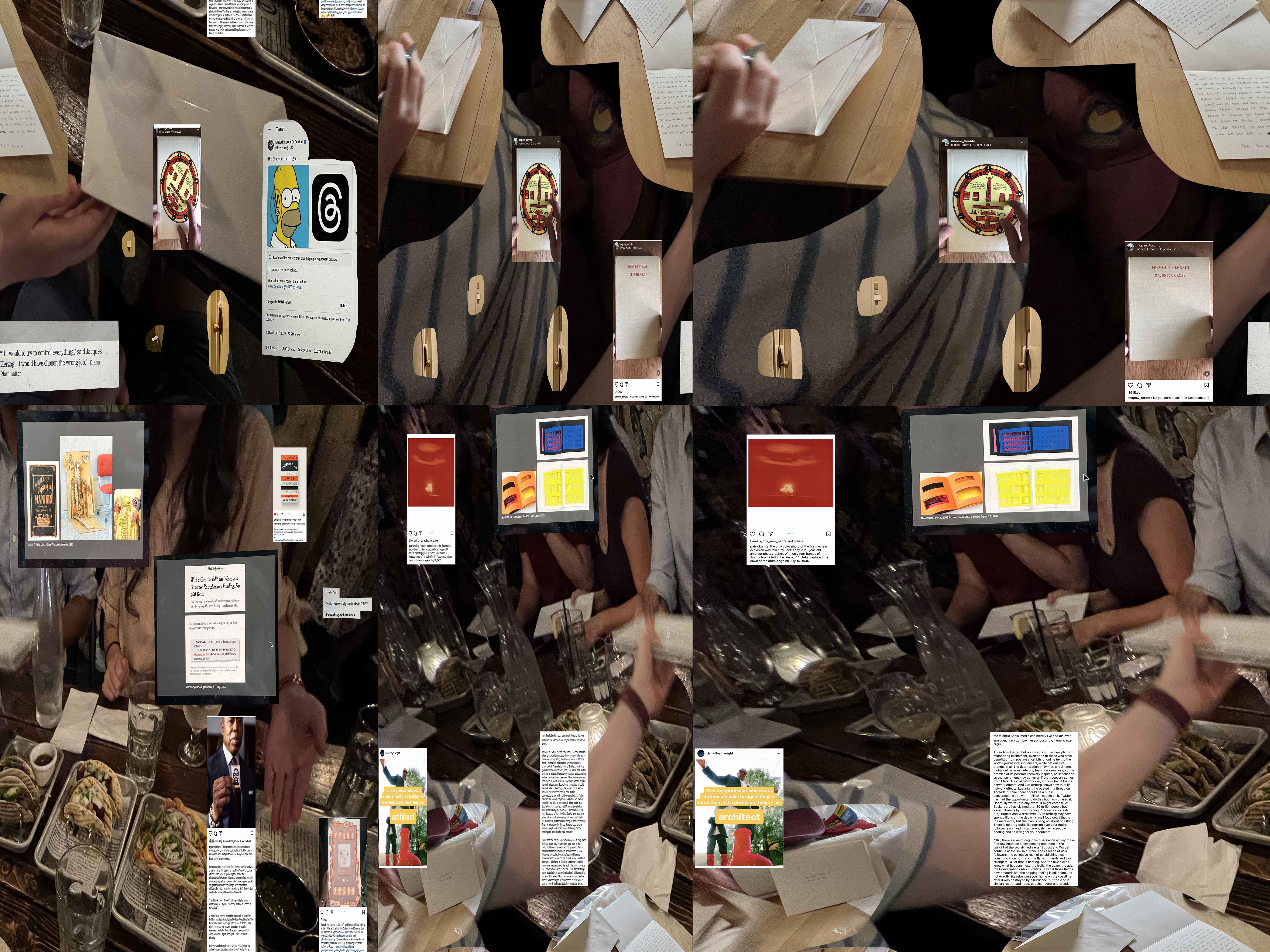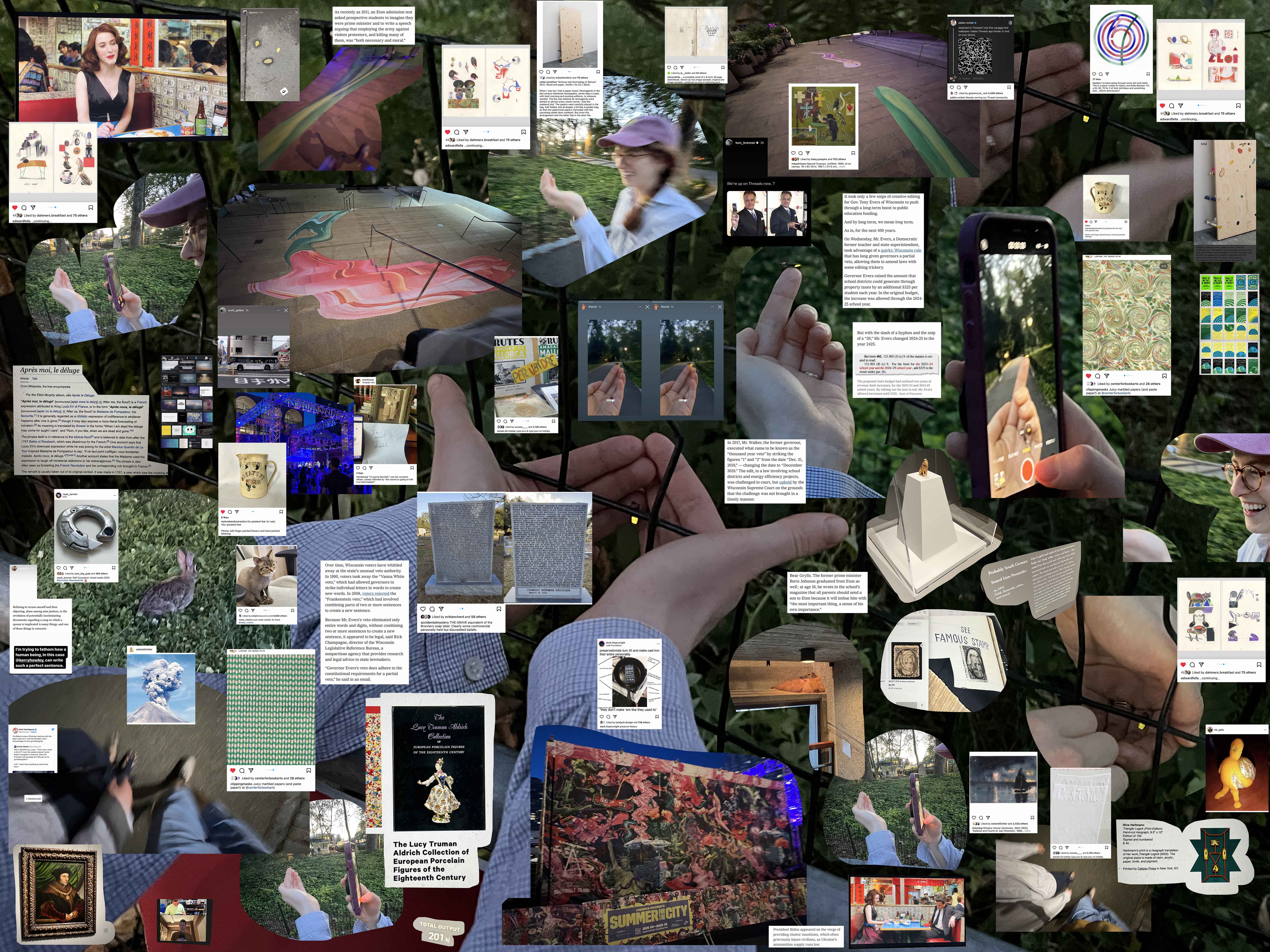Tuesday, July 25, 2023
I used to always think in terms of having two careers going, two threads that I was working with at the same time," Jim said later. "One was accepted by the audience and was successful, and that was the Muppets. The other [experimental films] was something I was very interested in and enjoyed. It didn't have that commercial success, but that didn't particularly frustrate me because I enjoyed it."
— Brian Jay Jones, Jim Henson: The Biography
Monday, July 24, 2023
The trick, he said, was to "try out whole new directions. There are many ways of doing something. Look for what no one has tried before."
— Brian Jay Jones, Jim Henson: The Biography
Sunday, July 23, 2023
Aging gave him a license to let down his guard, to compose and publish poetry, to reminisce, to allow elements of playfulness and sentimentality to enter his writing.
— David Nasaw, The Chief: The Life of William Randolph Hearst
Saturday, July 22, 2023
After taking off her shoes to enter, the first thing Ms. Belle noticed about Ms. Ono’s apartment was “how high the ceilings and how wide the hallways were. You could drive a car through those hallways.”
— Anna Kodé, "Yoko Ono and the Dakota," The New York Times
Friday, July 21, 2023
Auto-antonym
— @depthsofwikipedia
Thursday, July 20, 2023
this book went on a side quest about evalyn walsh mclean so i decided to as well
— @byrdest
Wednesday, July 19, 2023
A chicken can be hypnotized, or put into a trance, with its head down near the ground, by drawing a line along the ground with a stick or a finger, starting at the beak and extending straight outward in front of the chicken. If the chicken is hypnotized in this manner, it will continue to stare at the line, remaining immobile for as long as 30 minutes.
— "Chicken hypnotism," Wikipedia
Tuesday, July 18, 2023
Though we might enclose our heart within a text, we cannot know entirely that it is our heart a reader will find.
— David Allen White, "Love Lines: A suggestion on some letters of the Yukaghir," Cabinet Magazine
Monday, July 17, 2023
I'm just the person putting the hot dog on your plate. I didn't raise the meat. You gotta talk to the farmer.
— Lily*
Sunday, July 16, 2023
It takes so much maturity to taste the difference between these two.
— Sid really enjoying Breyers French Vanilla and Oberweis Vanilla
Saturday, July 15, 2023
C CLONES
— Mural
Friday, July 14, 2023
The other day Atlas asked me what is the highest number anyone has ever counted to, and of course, I had no idea. Kids ask great questions. So I looked it up, and within 5 seconds I'd learned that Jeremy Harper, a computer engineer from Birmingham, Alabama, broke the Guinness record for counting aloud to 1,000,000 in 2007. He counted nonstop sixteen hours per day - FOR 89 DAYS!!! - and during the count he neither left his home nor shaved. He live-streamed the entire three months!
Needless to say, Atlas was tickled to hear all this, and I was too. It immediately occurred to me "I wonder if some of it is on youtube," and of course, there is a clip of the last 50 numbers or so, and it is such a phenomenally weird and wonderful piece of footage.
— @sam_b_green
Thursday, July 13, 2023
It is said that the great American writer Hunter S. Thompson once typed out parts of Fitzgerald's The Great Gatsby and Hemingway's A Farewell to Arms, because he wanted to konw what it felt like to write a great novel. (He did this at work while employed at the magazine Time in 1959. the magazine eventually fired him.)
— "Can anyone confirm or deny? Source: @etiennefortierdubois's Étienne from Atlas of Wonders and Monsters," @belletrist
Wednesday, July 12, 2023
He never succeeds in doing it. But he says in the book, "even though I can't prove using empirical and scientific tools, the existence of a God, I can show through anecdotal evidence, having seen thousands of patients come through this institution, that people who believe in God get better faster, and that the recovery is more enduring than people who don't." And for me, hearing that was more impactful, than if he had claimed that he had proved the existence of a God. Because I wouldn't have believed that.
— Robert F. Kennedy Jr, "Robert F. Kennedy Jr: CIA, Power, Corruption, War, Freedom, and Meaning | Lex Fridman Podcast #388"
Tuesday, July 11, 2023
When he first signed the contract to write the book, he expected to finish in five years. In the end, the book took 25 years to write — and Sherwin didn't do it alone.
— @nytbooks
Monday, July 10, 2023
Munch without people (for the most part). Who knew?
— @robertasmithnyt
Sunday, July 9, 2023
Because it’s a way for me to let myself know that just because this may be the most important thing that I ever commit to a data card on a camera, doesn’t mean it isn’t [expletive] content to everyone else. You know, there’s part of me that thinks I should be a writer or an entrepreneur or I could blah, blah, blah. But then I think about it and go, I’ve made my peace with what I am at my core: There’s really only one thing I’ve ever been any goddamn good at. So to keep imagining that I’m going to suddenly transform into this formidable multihyphenate? I’m just starting to not buy my own hype. It’s about: Can I feel good about what I’m doing? OK, yes, then I’ll feel good about it.
— Robert Downey Jr., "Robert Downey Jr.’s Post-Marvel Balancing Act," The New York Times
Saturday, July 8, 2023
Talking to the Believer 10 years after Dispersion's initial publication Price said "I started writing that essay not because of any interest in the internet, but out of frustration about how to be an artist, or whether I even should "be" one. Is it possible to make objects anymore? Is that interesting? So really it was my thinking through how to enter this other world, and when I finished it, I thought the text itself might be a piece."
— "Seth Price," Wikipedia
Friday, July 7, 2023
“If I would to try to control everything,” said Jacques Herzog, “I would have chosen the wrong job.”
— Christopher Hawthorne, " This Time, Herzog & de Meuron Are Inside the Museum," The New York Times
Thursday, July 6, 2023
Over time, Wisconsin voters have whittled away at the state’s unusual veto authority. In 1990, voters took away the “Vanna White veto,” which had allowed governors to strike individual letters in words to create new words. In 2008, voters rejected the “Frankenstein veto,” which had involved combining parts of two or more sentences to create a new sentence.
Because Mr. Evers’s veto eliminated only entire words and digits, without combining two or more sentences to create a new sentence, it appeared to be legal, said Rick Champagne, director of the Wisconsin Legislative Reference Bureau, a nonpartisan agency that provides research and legal advice to state lawmakers.
“Governor Evers’s veto does adhere to the constitutional requirements for a partial veto,” he said in an email.
— Sarah Mervosh, "With a Creative Edit, the Wisconsin Governor Raised School Funding. For 400 Years.," The New York Times

